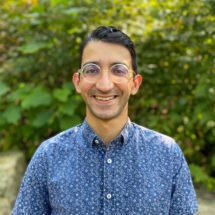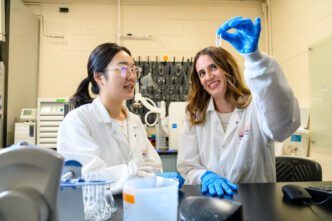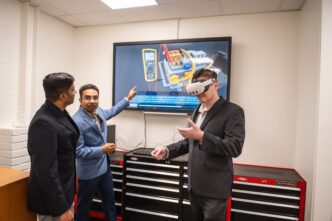Quantum computers could revolutionize the future of science and technology by solving complex problems that are beyond the reach of even the best current classical supercomputers.
Unlike conventional computers that store information in binary form (1s and 0s), quantum computers exploit the strange properties of quantum physics to store information in multiple forms known as qubits. By leveraging two key phenomena — quantum superposition and entanglement — quantum computers can explore multiple solution pathways simultaneously, allowing them to solve problems that would take a traditional computer too long to calculate.

“They are like supercomputers on steroids,” said Kasra Sardashti, an assistant professor in the College of Science’s Department of Physics and Astronomy.
There’s no single physical platform to perform quantum computing and each of the physical platforms used as a quantum processor prototype has advantages. But they also have limitations that prevent their scalability.
Sardashti, Clemson professor Lin Zhu and collaborators from Caltech, Virginia Tech and New York University aim to integrate two physically distinct information processing platforms into a hybrid quantum computing system to realize quantum random access memory for the first time.
“Many quantum computing tasks would benefit enormously from the ability to combine physically distinct information processing platforms into a hybrid quantum computing system,” Sardashti said. “We are working to develop a hybrid quantum random access memory that can temporarily store the fragile quantum states between various calculations. This functionality is critical in many of the envisioned applications of quantum computing.”

Sardashti and his team have received a four-year, $2.5 million grant from the National Science Foundation’s Enabling Quantum Leap: Quantum Interconnect Challenges for Transformational Advances in Quantum Systems program for the work.
The research aims to build quantum interconnects between a microwave quantum system (superconducting qubits) and a mechanical quantum system (phononic crystal) and realize quantum memory.
“One critical task is to create a channel that can exchange information between different quantum systems and maintain the information’s quantum nature,” said Zhu, a professor of electrical and computer engineering in the College of Engineering, Computing and Applied Sciences.

The researchers’ goal is to build a high-quality mechanical cavity with long coherence time and realize efficient and controllable coupling between superconducting qubits and the mechanical cavity.
“Through coherent quantum state transfer between superconducting qubits and mechanical phonons, we will be able to obtain quantum information exchange channels between various quantum systems and realize quantum random access memories,” Zhu said.
Sardashti said functional quantum computers could transform medicine by optimizing drug design and testing, logistics and encryption.







